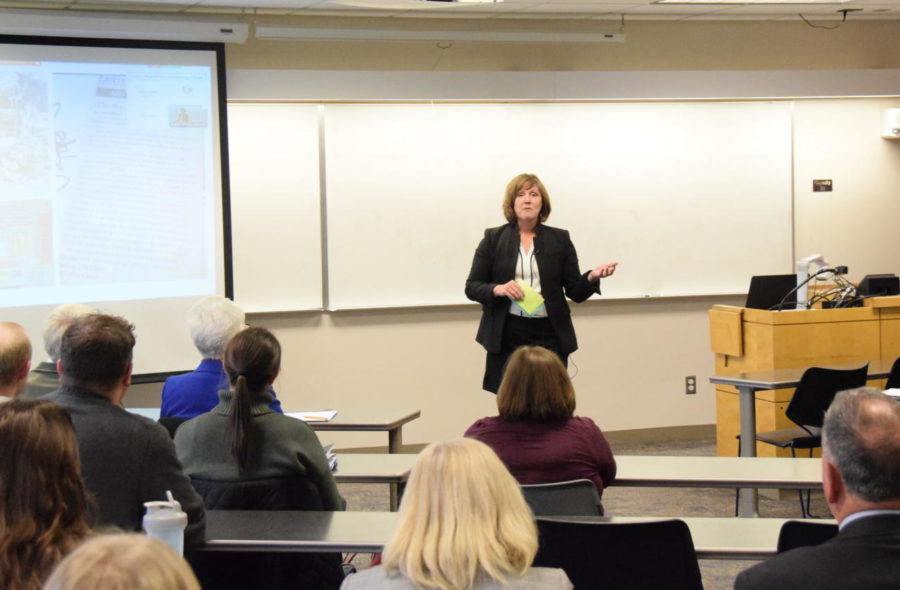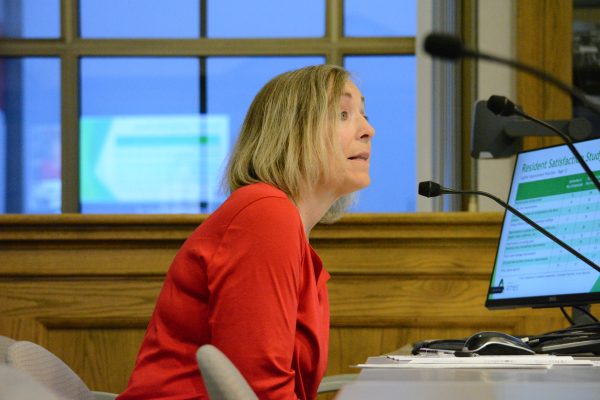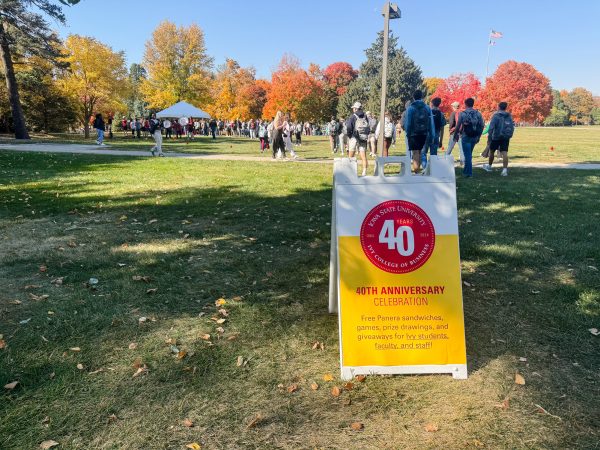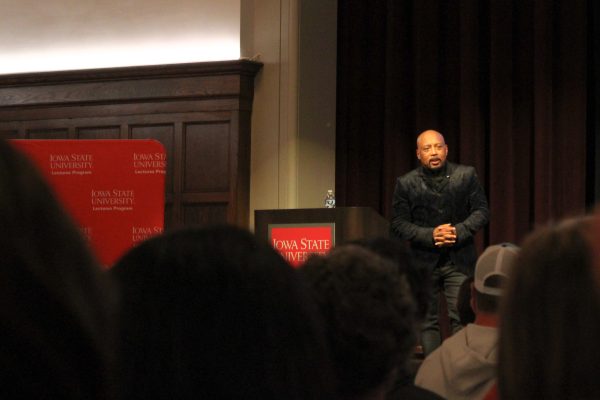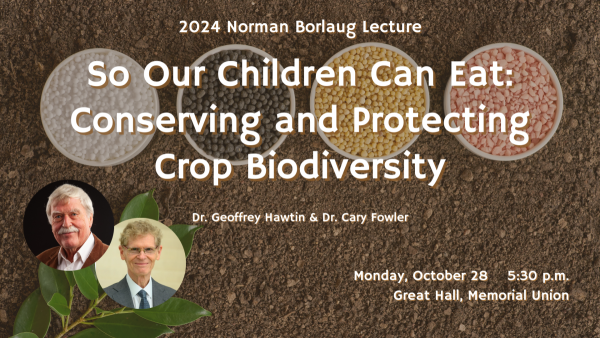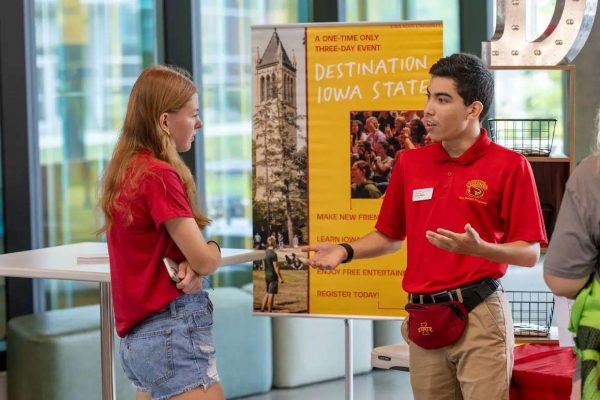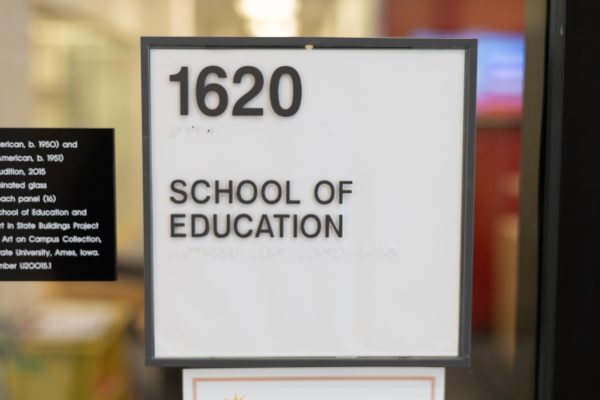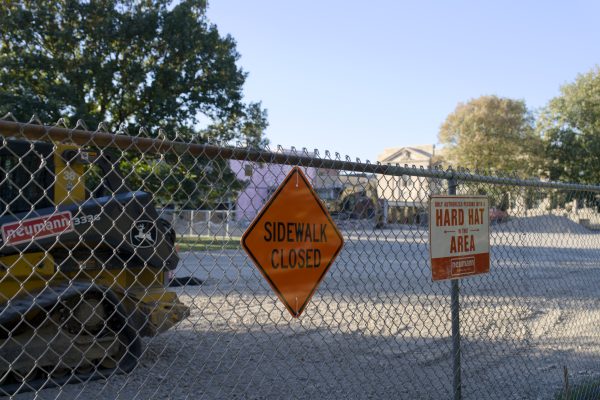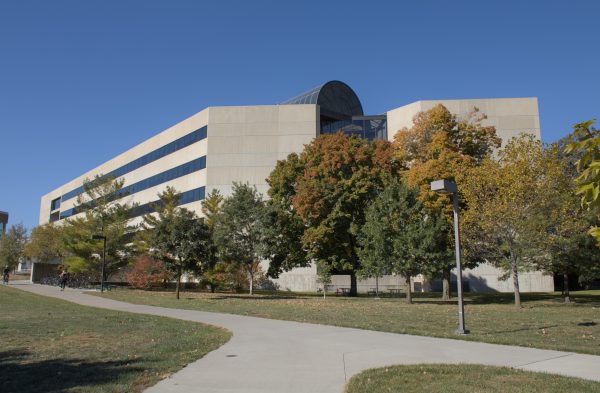Prospective vice president for Extension and Outreach visits campus
Lindsey Shirley pictured during her presentation at the public forum during her visit to campus.
In the search for a new vice president for Extension and Outreach, Iowa State hosted the first of five public forums with Lindsey Shirley, the first finalist to visit campus.
Shirley is an Iowa State University alumna, having earned her bachelor’s degree and doctoral degree at Iowa State. Shirley said growing up in Ames; she was inspired by her family and educators to pursue a career in administration and higher education.
Shirley currently serves as the assistant vice president of Extension and Outreach at Colorado State University. Before Colorado State, Shirley spent eight years as a faculty member at Utah State University and three years at the University of Idaho.
Shirley said the leader of Extension and Outreach should be a traditioned innovator who can use history to direct the company’s success while fostering a culture that allows for innovation, failure, learning and growth.
“Another example is a globally-minded localist, right?” Shirley said. “We have to think about what’s happening in communities but also be aware of what’s occurring around the world too, as we talk about the future.”
Shirley said one of the big challenges that Extension and Outreach face is being responsive to issues that arise on a local, regional and national level. Shirley said it is important to build a plan and a strategy to be ready to address such issues efficiently.
“And, so, I’ve got a few ideas of what we might be able to do that,” Shirley said. “And, it’s really through empowering individuals and empowering our workforce, but also looking at that mutual benefit to communities and training communities to get involved in the work as well.”
Shirley described a previous experience at Utah State, where she worked with industry professionals to resolve a gap in the region’s workforce. Shirley said she, along with a consortium of professionals, cocreated a new major to help create a more fleshed-out workforce.
“And, so, in a matter of a small amount of time, as degrees come to light, we were able to design, develop and launch, and 90 students showed up the first semester without any marketing,” Shirley said. “So, the moral of this story is, it’s not only about what happens in our colleges and in our classrooms, extension can be that front door.”
Shirley said embracing partnerships within the community can be a great way to bring out the voices of those who are not being served.
“But, I think the vice president coming in has an opportunity and a challenge to build relationships to listen and learn where people are at today, and what are your hopes and dreams and where do you want to move in the future?” Shirley said.
After Shirley’s presentation, the forum was opened to questions from the audience. One member of the virtual audience asked how Extension and Outreach should react to changing demography, like new stakeholders and means of communication.
Shirley responded it is important to start by addressing the needs of the people they serve. Shirley said addressing the needs of the people they serve can include many different strategies and incorporate different professionals and types of expertise.
“What evidence-based strategies do we need to pursue?” Shirley said. “So, each one of those areas probably has a different strategy that would be appropriate and different professionals that would be motivated to serve a particular audience or have the talent and the acumen for that.”
Another member of the audience asked Shirley how Extension and Outreach might use the county offices across the state to introduce potential students of diverse backgrounds to the possibilities at Iowa State.
Shirley said that in Colorado State, an investment from the Board of Governors allowed the university to hire five regional specialists to focus on accessible education.
“And what that means is just that,” Shirley said. “Looking at recruitment opportunities, looking at education about what is higher education, what opportunities exist, what pathways are there in Colorado. And, then, also doing some career exploration, right, because it’s one thing to get a degree; it’s another thing to have a pathway into a profession.
The next public forum will take place at 2 p.m. Monday in 202 Carver Hall.
Your donation will support the student journalists of the Iowa State Daily. Your contribution will allow us to purchase equipment, send our student journalists to conferences and off-set their cost of living so they can continue to do best-in-the-nation work at the Iowa State Daily.


